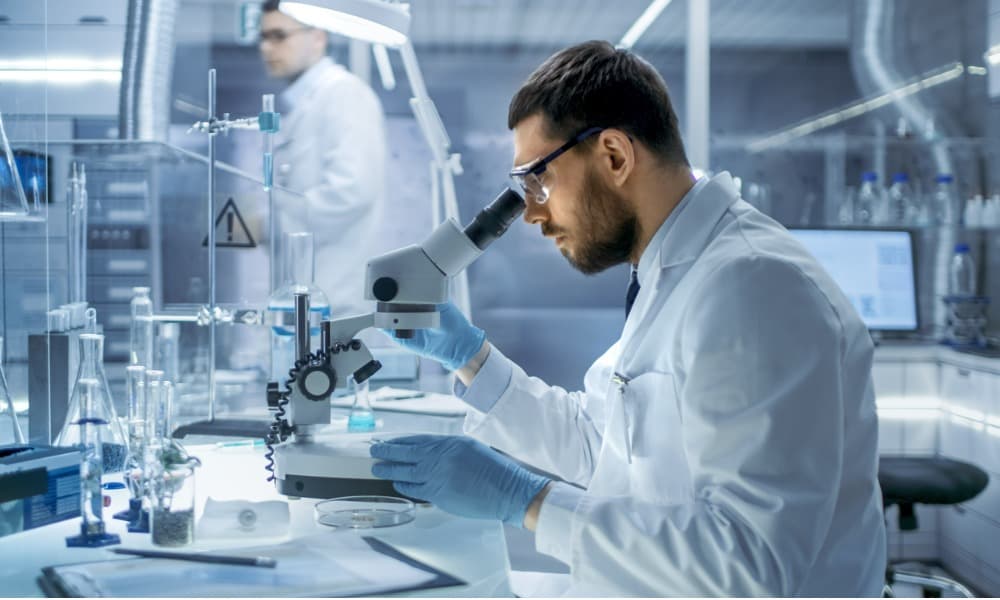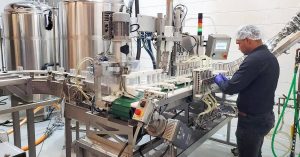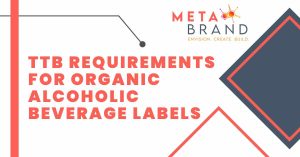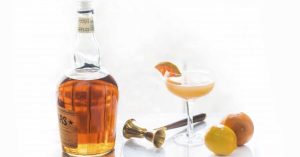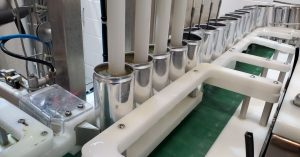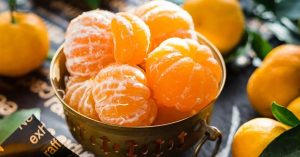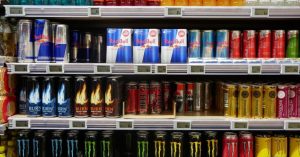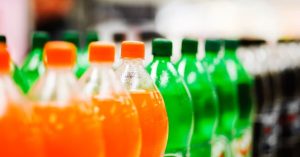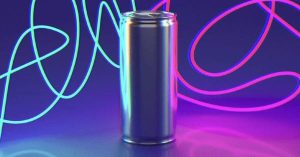Beverage testing is critical to ensure consumable beverages’ safety, quality, consistency, and compliance. It is performed in a beverage testing laboratory by expert professionals who use analytical instruments and specialized techniques to conduct comprehensive chemical, physical, and microbiological tests.
The primary goal of beverage testing is to identify and characterize any possible contamination, hazardous compounds, or adulteration that may have occurred during the formulation and production process. This helps ensure that the final product is of high quality, meets relevant safety guidelines and industry standards, and is produced in compliance with applicable regulatory requirements.
Beverage in-process testing is crucial for quality control throughout the entire production process. Catching any irregularities, contamination, or unintentional adulteration at the early stages of production can help minimize costly wastage, reduce time-to-market, maximize profits, and avoid potential liabilities.
Beverage testing also plays a role in compliance issues with local regulations, labeling requirements, product stability, and shelf-life considerations. Read on to find out more about the importance of beverage testing, standard testing practices, and what to look for in a qualified beverage testing laboratory.
Beverage Testing Services: Ensuring Safety, Quality, and Compliance
Running a successful beverage business requires more than just a great product. Quality control, safety regulations, and labeling requirements contribute to your business’s success. Beverage testing is vital for several reasons, including:
Nutritional Information Gathering for New and Innovative Ingredients
Creative beverage producers continually look for innovative ingredients for product differentiation. This may include novel fruits or vegetables, spices, dairy-free or plant-based ingredients, and the like.
Beverage testing can help identify and quantify the nutritional information of new and innovative ingredients to enhance product development without digging into the deeper layers of food science.
Ensuring Quality and Safety of Beverage Products
Quality control testing ensures that the final product meets the highest standards and specifications. Test parameters may vary depending on the type of beverage but should include a minimum of tests for physical properties, additives and preservatives, microbiological contaminants, pH and acidity, minerals, vitamins, and flavor compounds.
Unsafe or adulterated products can lead to regulatory violations, costly liabilities, and significant loss of brand reputation.
Verifying Labeling Claims: Beverage Testing Importance
Labeling claims such as ingredient lists, nutritional facts, and calorie counts must be accurate, clear, and consistent. Beverage testing can verify that the ingredients match what’s stated on the label and that nutritional information is accurate, including vitamin content, health claims, and calorie counts.
Alcohol beverage testing, for instance, may include verifying the alcohol by volume (ABV) stated on the label as per the Alcohol and Tobacco Tax and Trade Bureau (TTB) labeling requirements.
Compliance with Local and State Regulations: Beverage Testing
Hazardous chemical compounds, contaminants, and additives pose serious health risks for consumers. Beverage testing can help detect contaminants such as lead, mercury, arsenic, and E. coli in beverages that may be present due to environmental or production contamination.
Compliance with local, state, and federal regulations is critical to protecting your business from costly fines, lawsuits, and product recalls.
Maintain Product Stability and Shelf-Life
Beverage product testing can help determine the shelf-life of products and ensure consistent product quality. Monitoring changes in pH, oxidation, microbial activity, color, flavor, and nutrient content throughout storage is essential. This helps keep products stable while stored in warehouses, on shelves, or transported to distributors and vendors.
Comprehensive testing of your product’s composition, chemical properties, flavor profiles, and nutritional content can help in product development, ensure product safety, verify label claims, and help your business comply with local and federal laws. Several tests are done to ensure the final product’s quality and safety.
Challenges in Beverage Industry Testing and Analysis
Evolving Consumer Demands
One significant challenge is the constant evolution of consumer tastes. People are continually seeking new flavors and sensory experiences, which compels beverage companies to innovate rapidly. Each new product variation requires thorough testing to ensure quality and compliance with safety regulations, demanding flexibility in testing methods.
The Rise of Health Consciousness
Increasing health awareness among consumers adds another layer of complexity. There’s a growing demand for beverages that are not only tasty but also healthy and natural. This trend necessitates more rigorous testing procedures to verify health claims and nutritional content, pushing testing facilities to adopt more precise analytical techniques.
Technological Advancements in Testing
Keeping up with advancements in testing technology is also a challenge. As new instruments and methodologies emerge, it can be difficult for companies to stay updated and integrate these innovations into their current processes efficiently. This is essential for maintaining their competitive edge and ensuring the accuracy of their product assessments.
Maximizing Productivity and Efficiency
Finally, optimizing testing procedures is crucial for maintaining productivity and efficiency. Companies must find ways to streamline their operations without compromising on the quality of testing. This can be daunting, especially as they strive to balance speed, accuracy, and cost-effectiveness.
By addressing these challenges, the beverage industry can better meet consumer expectations while ensuring the highest standards of quality and safety.
Standard Lab Services for Beverage Testing
Food and beverage testing laboratories offer comprehensive services to detect and analyze various chemical, physical, and microbiological contaminants. The most commonly requested tests include:
1. Chemical Analysis for Beverage Testing: Ensuring Quality
Chemical analysis can detect the presence of additives, allergens, preservatives, and contaminants such as arsenic, lead, and mercury. It also measures pH levels, acidity, and the concentration of vitamins and minerals.
2. Microbiological Analysis for Safety Assurance
Microbial analysis can detect bacteria, fungi, yeast, mold, and other microorganisms that can cause spoilage or create health risks. This is crucial for ensuring product safety, shelf-life, and product quality. Consumers rely on food and beverage companies to provide safe products.
3. Physical Testing of Beverages: Quality Assessment
Physical testing measures the physical properties of beverages, such as color, clarity, viscosity, flavor, and texture. It may include tests for moisture content, sediment, solids, and suspended particles. Maintaining consistent product quality, flavor, and texture is critical for customer satisfaction.
4. Flavor and Sensory Analysis
This is a subjective evaluation of the sensory attributes of a beverage. Flavor and sensory analysis use the senses to evaluate a beverage’s taste, smell, look, aroma, and texture. This helps determine consumer preferences, improve decision-making, guide product development efforts, and assess the overall quality of a product.
Beverage in-process testing helps identify defects, adjust production processes, and ensure product consistency.
These tests provide valuable insights into product composition, ingredient safety and quality, shelf-life, and stability. Partnering with a qualified food and beverage testing laboratory is essential to ensure accurate results, improve product safety and quality, and comply with regulations.
How to Choose a Beverage Testing Laboratory: Key Considerations
The success of your beverage business depends on the accuracy and reliability of test results. Choosing a laboratory with the experience, certifications, and resources needed to meet your testing needs is essential. Here are some helpful tips for selecting the right beverage testing laboratory:
1. Experience and Expertise in Beverage Testing: Choosing a Lab
Choose a lab with extensive beverage testing experience and knowledgeable professionals who understand the industry. Ask questions about their testing services and processes, certifications, and qualifications.
2. Check for Accreditation
Verify that the laboratory is accredited by a recognized body such as the American Association for Laboratory Accreditation (A2LA) or the International Organization for Standardization (ISO). Accredited labs have proven their capabilities and reliability to meet industry standards.
3. What Resources and Technology Do beverage testing labs They Have?
Evaluate the laboratory’s resources and technology. Inquire about their equipment, sample preparation techniques, and data management systems, and be sure you know their turn times for each test and how they handle rush orders. Look for a lab that has the latest technology and advanced systems to ensure you get accurate results quickly.
4. Look for Quality Assurance Programs and Specialized Services
Quality assurance programs are in place to ensure the accuracy and repeatability of test results. Ask about their quality control procedures, data validation methods, and checking processes. You should also inquire about their specialized services, such as sample profiling, custom analysis, and data interpretation.
Experienced and certified food and beverage testing laboratories will help you navigate the nuances of product testing and compliance, meet industry standards, and ensure product quality. The right partner will bring their expertise and resources and provide reliable results that help you confidently make informed decisions.
MetaBrand Is Your Trusted Beverage Formulation and Manufacturing Partner
MetaBrand is a full-service beverage formulation and manufacturing partner with the experience, resources, and expertise to help you develop and produce high-quality products.
We provide comprehensive laboratory testing services, including flavor and sensory analysis, chemical composition, and nutritional facts panel verification. Leverage our proven processes and quality assurance systems to meet industry standards and regulations. Contact the MetaBrand team today to learn more about our beverage testing services.
FAQ's
Beverage testing is the process of evaluating a product’s quality, safety, and compliance with regulations. It involves analyzing the physical, chemical, and sensory properties of a beverage to ensure it meets industry standards.
Common tests used in beverage testing include pH level, alcohol content, microbial contamination, color analysis, viscosity measurement, and organoleptic evaluation.
The frequency of testing depends on the type of product being tested as well as the regulations that apply to it. Generally speaking, most beverages should be tested at least once during production and again before they are released to the market.
Not conducting regular quality control tests can lead to products that don’t meet industry standards or consumer expectations. This can result in recalls or other costly consequences for businesses. Additionally, failing to comply with regulatory requirements can lead to fines or other legal penalties.


